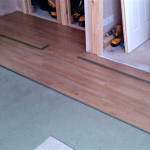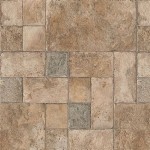Does Vinyl Flooring Get Glued Down? Understanding the Installation Methods
Vinyl flooring is a popular choice for homeowners due to its durability, affordability, and ease of maintenance. However, one question that often arises is whether vinyl flooring needs to be glued down. The answer depends on several factors, including the type of vinyl flooring, the subfloor, and the traffic level in the area where it is being installed.
Types of Vinyl Flooring and Installation Methods
There are two main types of vinyl flooring: luxury vinyl plank (LVP) and luxury vinyl tile (LVT). LVP is installed by locking the planks together, while LVT is typically glued down. However, there are also LVT options that can be installed using a floating method, similar to LVP.
Subfloor Requirements
The type of subfloor also affects whether vinyl flooring needs to be glued down. For concrete subfloors, gluing down vinyl flooring is typically recommended to ensure a secure installation. For plywood or OSB subfloors, gluing down is necessary only in areas with heavy foot traffic or moisture exposure.
Traffic Level
The expected traffic level in the area where the vinyl flooring is being installed is another consideration. In areas with high traffic, such as kitchens, bathrooms, and hallways, gluing down vinyl flooring is generally recommended to prevent it from shifting or buckling underfoot.
Benefits of Gluing Down Vinyl Flooring
Gluing down vinyl flooring provides several benefits, including:
- Enhanced stability: Glued-down vinyl flooring is more stable and less likely to move or shift over time, especially in high-traffic areas.
- Improved sound dampening: Gluing down vinyl flooring helps to reduce sound transmission, making it a quieter flooring option.
- Increased durability: Glued-down vinyl flooring is more resistant to wear and tear, extending its lifespan.
When Glue-Down Installation is Not Necessary
In certain situations, gluing down vinyl flooring may not be necessary. For example:
- Low-traffic areas: In bedrooms, guest rooms, or closets, where foot traffic is minimal, gluing down vinyl flooring is generally not required.
- Temporary installations: If you plan to remove the vinyl flooring in the future, gluing it down may not be necessary.
- Certain LVT options: Some LVT products are designed with floating installation methods, eliminating the need for glue.
Conclusion
Whether or not vinyl flooring needs to be glued down depends on the type of flooring, subfloor, traffic level, and desired stability. For most applications, gluing down vinyl flooring is recommended to ensure a durable, secure, and long-lasting installation.

Floating Vinyl Plank Flooring Vs Glue Down 99cent Floor

Glue Down Vs Floating Lvp Which Is Better Whole Cabinet Supply

Luxury Vinyl Flooring Vs Glue Direct Wood

Glue Down Vs Floating Luxury Vinyl Flooring

Does Vinyl Flooring Need To Be Glued Down Thediyplan

Glue Down Vinyl Flooring Lifestepp

Do I Need To Glue Vinyl Flooring

Glue Down Vinyl Plank Flooring Ivanees Wen Lighting

How To Install Glue Down Vinyl Plank

The Advantages Of Using Glue Down Vinyl Tiles In Your Home Pro Flooring
Related Posts








